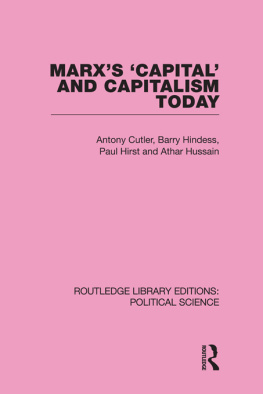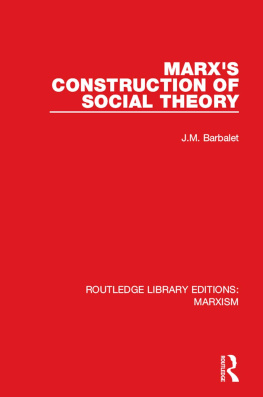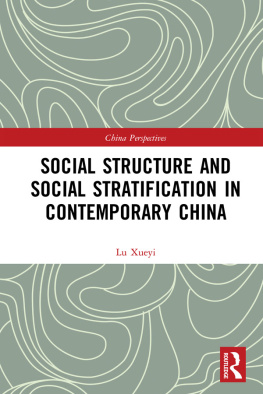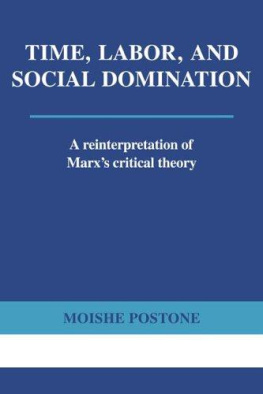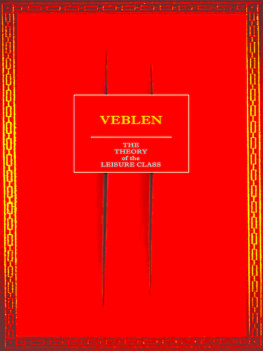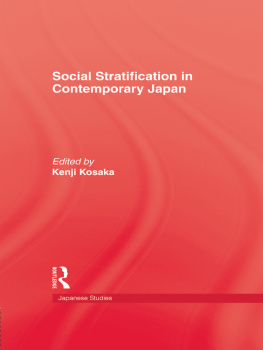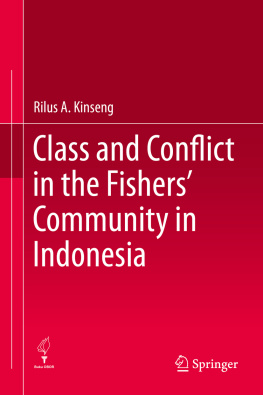ROUTLEDGE LIBRARY EDITIONS: SOCIAL THEORY
Volume 13
CLASSES, STRATA AND POWER
CLASSES, STRATA AND POWER
W. WESOOWSKI
Translated and with an Introduction by
GEORGE KOLANKIEWICZ
First published in 1979
This edition first published in 2015
by Routledge
2 Park Square, Milton Park, Abingdon, Oxon, OX14 4RN
and by Routledge
711 Third Avenue, New York, NY 10017
Routledge is an imprint of the Taylor & Francis Group, an informa business
Original Polish language edition 1966 Panstwowe Wydawnicto Nankowe Introduction, English translation and editorial matter 1979 George Kolankiewicz
All rights reserved. No part of this book may be reprinted or reproduced or utilised in any form or by any electronic, mechanical, or other means, now known or hereafter invented, including photocopying and recording, or in any information storage or retrieval system, without permission in writing from the publishers.
Trademark notice: Product or corporate names may be trademarks or registered trademarks, and are used only for identification and explanation without intent to infringe.
British Library Cataloguing in Publication Data
A catalogue record for this book is available from the British Library
ISBN: 978-0-415-72731-0 (Set)
eISBN: 978-1-315-76997-4 (Set)
ISBN: 978-1-138-78302-7 (Volume 13)
eISBN: 978-1-315-76369-9 (Volume 13)
Publishers Note
The publisher has gone to great lengths to ensure the quality of this reprint but points out that some imperfections in the original copies may be apparent.
Disclaimer
The publisher has made every effort to trace copyright holders and would welcome correspondence from those they have been unable to trace.
Classes, strata and power
W. Wesoowski
Translated and with an Introduction by
George Kolankiewicz
First published in 1979
by Routledge & Kegan Paul Ltd
39 Store Street,
London WC1E 7DD,
Broadway House,
Newtown Road,
Henley-on-Thames,
Oxon RG9 1EN and
9 Park Street,
Boston, Mass. 02108, USA
Set in 10 on 11pt Times by
Billing & Sons Ltd, Guildford
and printed in Great Britain by
Lowe & Brydone Printers Ltd
Thetford, Norfolk
Original Polish language edition,
Panstwowe Wydawnicto Nankowe, 1966
Introduction, English translation and editorial matter
George Kolankiewicz 1979
No part of this book may be reproduced in any form without permission from the publisher, except for the quotation of brief passages in criticism
British Library Cataloguing in Publication Data
Wesolowski, W
Classes, strata and power (International library of sociology)
1 Social classes 2 Communism and society
1 Title II Series
301.4401HT60978--40816
ISBN 0 7100 8845 0
Contents
The purpose of this introduction is to sketch in the main figures and some of the issues which accompanied the emergence of Polish sociology. It is provided so that the reader does not come cold to the main text, without at least imbibing some of the rich sense of tradition which surrounds Polish sociology. This book, published as it was over thirteen years ago, is already very much a part of this tradition although a more active constituent.
Sociology as an institutionalised discipline made a difficult start in Poland, given the persistence of some form of partition and foreign domination until after the First World War. Perforce it was practised and developed by those from outside the universities and from various areas of the humanities. At the turn of the century Poland could boast such social theorists as Ludwig Krzywicki, L. Gumplowicz and Rosa Luxemburg, apart from its rich resources in philosophy. Many Polish thinkers and sociologists were associated with countries other than that of their origin due to forced emigration, exile and the general repression of Polish national cultural life.
At the risk of some over-simplification it is possible to identify the major foci of pre-war Polish sociology as situated in the capital, Warsaw, and in Pozna and linked with the names Krzywicki and Znaniecki respectively.
Ludwig Krzywicki (18591941)subsequently with the work of Karl Marx that much easier to make. It also enabled him to retain a position ever suspicious of dogmatic and unscientific thought whilst perhaps explaining in part his rather reticent role in working-class organisation. Krzywicki had studied medicine, biology and mathematics before finally turning to philosophy and economics, as is fully evident to anyone reading his work on primitive communities or the agrarian question.
With the collaboration of some young colleagues, early in life he worked on a translation into Polish of Marxs first volume of Capital, in the course of which he entered into correspondence with F. Engels. He was very much an intellectual Marxist, who, whilst maintaining links with Waryskis Proletariat party and SDKPiL (the forerunner of the Polish Workers Party), nevertheless saw his role rather differently. Whether due to an accident in early childhood which left him with an unsureness of speech or because of his intellectual orientations he felt more concerned to create a socialist intelligentsia, without which he believed little could be done, than to engage in organisational work.
Almost inevitably for that time Krzywicki found himself in exile, which, as for others before him, was very much in the way of a mixed blessing providing as it did an opportunity to study and meet like-minded people around the major cities of Europe such as Zurich and Paris. It was during this period that he encountered the likes of Kautsky, Bernstein and Mehring.
On his return to Poland, Krzywicki became involved with the conspiratorial university in Warsaw and also strove more actively in the dissemination and democratisation of knowledge, to make the latter accessible to workers and women. Forced again to go into exile, he visited Berlin and then the USA, where he gained first-hand knowledge of the workings of the stock market, large-scale farming, agricultural innovation, etc., which he later utilised in his writings.
Again on his return he was imprisoned for a time; on release he found himself active in the 1905 version of the Revolution and again imprisoned. His scholarly work and teaching activities never ceased. He remained possibly the seminal social theoretical influence in turn-of-the-century Poland, at a time when formal institutional academic and intellectual influence was impossible. Throughout he stayed primarily an intellectual Marxist although, as with his positivism, the ethical residue of the former strongly influenced the direction of his research activities, once he was able to engage in them. This opportunity was eventually presented to him on the emergence of an independent Poland, whereupon he became the director of the Institute of Social Economics and vice-director of the Central Statistical Office. From here on Krzywicki seems to have devoted his energies to a whole range of intellectual societies and learned organisations dealing with history, ethnology, statistics, psychology, sociology, agricultural economics and the effects of capitalism in Poland.


